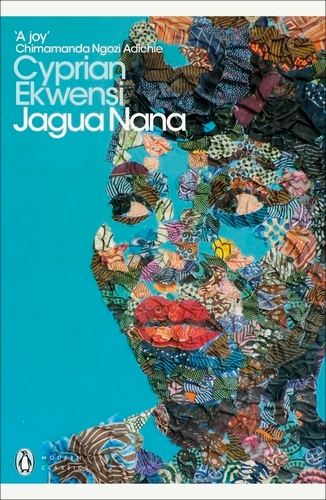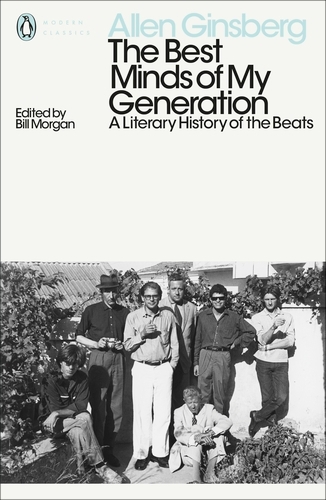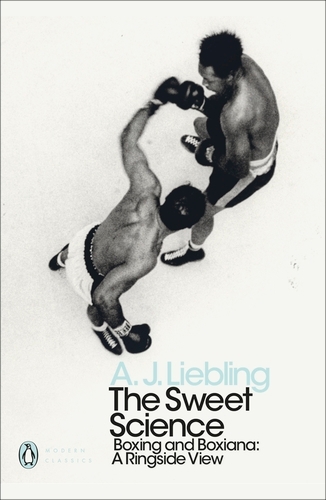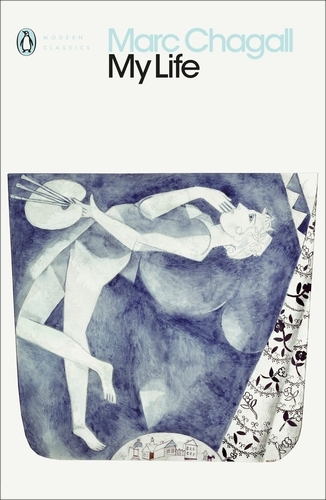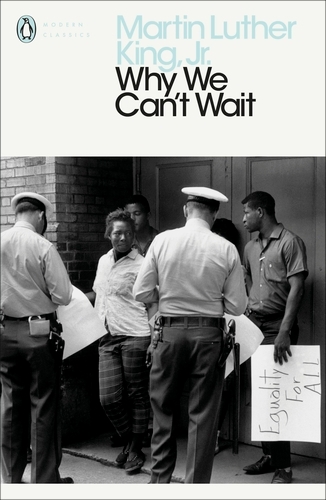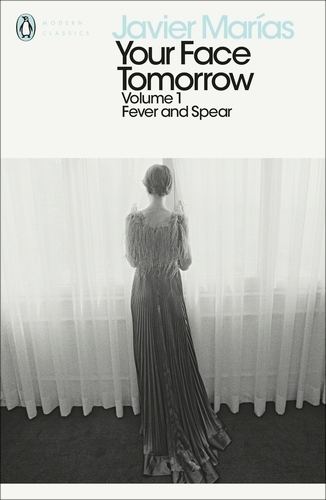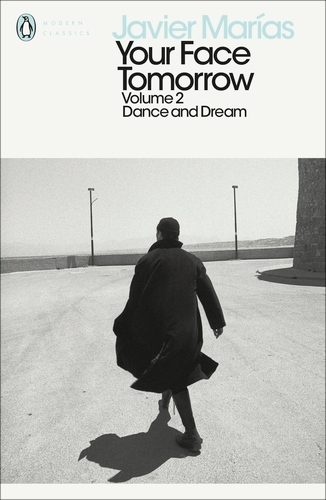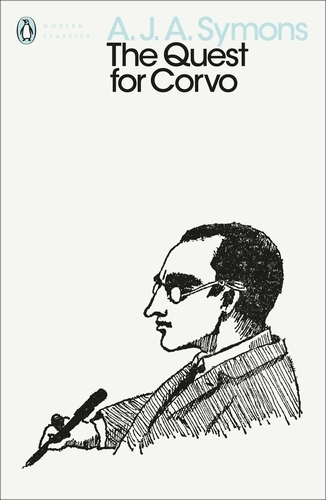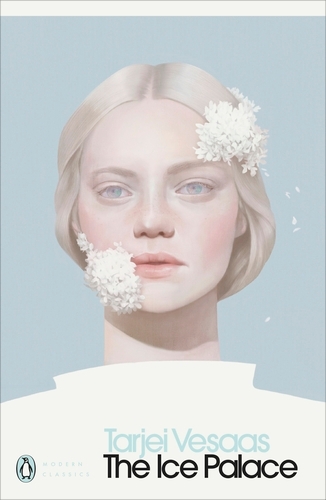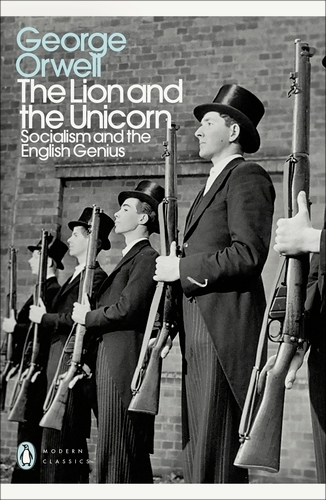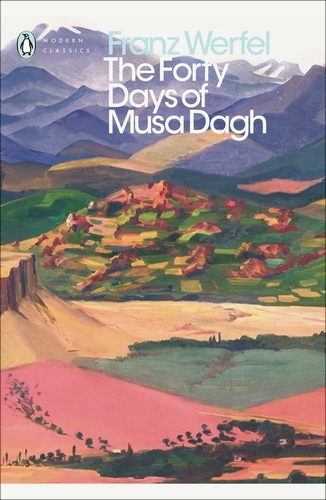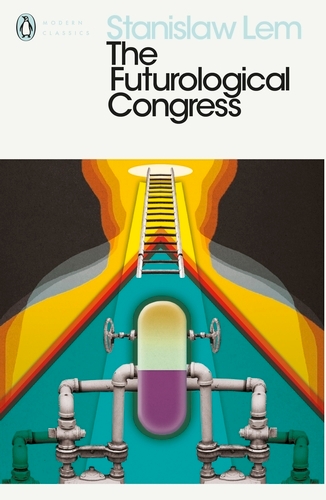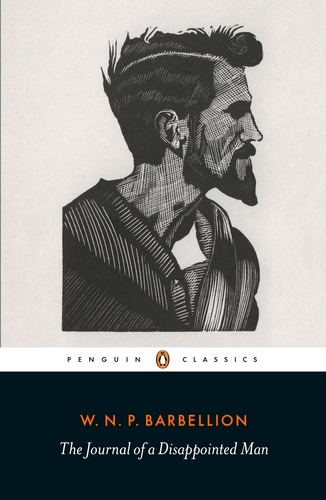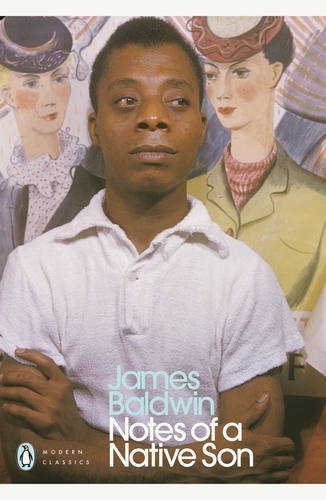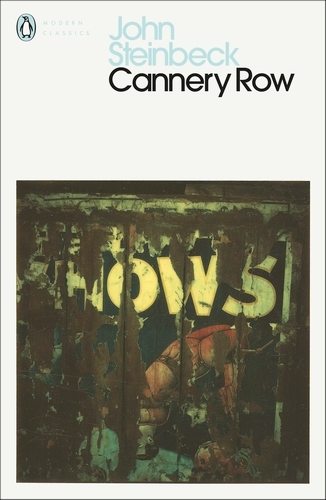Penguin Modern Classics
1281 books in this series
Jagua Nana
Bold, moving, entertaining and controversial, this is the great novel of 1960s Lagos life - with one of the most unforgettable heroines in literature.
Jagua Nana, no longer young but still irresistible, lives a life of hedonism in Lagos: men, parties, fights, wild nights in the Tropicana with her handsome young boyfriend Freddie. Rushing from one experience to the next in search of something she can't quite grasp, Jagua finds herself embroiled in shady politics, caught up in village feuds and a source of drama wherever she goes. In this vivid depiction of 1960s Nigeria, everyone is hustling and everyone is on the make - and a woman like Jagua must find her own unconventional path to fulfilment.
Jagua Nana, no longer young but still irresistible, lives a life of hedonism in Lagos: men, parties, fights, wild nights in the Tropicana with her handsome young boyfriend Freddie. Rushing from one experience to the next in search of something she can't quite grasp, Jagua finds herself embroiled in shady politics, caught up in village feuds and a source of drama wherever she goes. In this vivid depiction of 1960s Nigeria, everyone is hustling and everyone is on the make - and a woman like Jagua must find her own unconventional path to fulfilment.
The Best Minds of My Generation
In 1977, twenty years after the publication of his landmark poem 'Howl' and Jack Kerouac's On the Road, Allen Ginsberg decided it was time to teach a course on the literary history of the Beat Generation. In The Best Minds of My Generation - a compilation of lectures from the course, expertly edited by renowned Beats scholar, Bill Morgan - Ginsberg gives us the convoluted origin story of the 'Beat' idea. Amongst anecdotes of meeting Kerouac, Burroughs and other figures for the first time, Ginsberg elucidates the importance of music, and particularly jazz rhythms, to Beat writing, discusses their many influences - literary, pharmaceutical and spiritual - and paints a portrait of a group who were leading a literary revolution. A unique document that works both as historical record and unconventional memoir, The Best Minds of My Generation is a vivid, personal and eye-opening look at one of the most important literary movements of the twentieth century.
The Sweet Science
Take a ringside seat next to A. J. Liebling at some of the greatest fights in history. Here is Joe Louis's devastating final match; Sugar Ray Robinson's dramatic comeback; and Rocky Marciano's rise to heavyweight glory. The heated ringside atmosphere, the artistry of the great boxers and the blows and parries of the classic fights are all vividly evoked in a volume described by Sports Illustrated as 'the best American sports book of all time'.
'A rollicking god among boxing writers ... before Tom Wolfe and Hunter S. Thompson were out of diapers, Liebling was taking his readers on excursions through the hidden and often hilarious levels of this bruised subculture ... the Master' Los Angeles Times
'Nobody wrote about boxing with more grace and enthusiasm' The New York Times
'A rollicking god among boxing writers ... before Tom Wolfe and Hunter S. Thompson were out of diapers, Liebling was taking his readers on excursions through the hidden and often hilarious levels of this bruised subculture ... the Master' Los Angeles Times
'Nobody wrote about boxing with more grace and enthusiasm' The New York Times
My Life
Chagall was born in Witebsk in White Russia, the son of a herring merchant who lived opposite a laundress and a chimney sweep. After the Revolution, while waiting for emigration papers, he wrote his autobiography at the age of 34.
My Life reads like one of Chagall's paintings: emotional, fragmentary, humorous, colourful and dream-like, soaked in nostalgia for Jewish small-town society, familiar to us from The Fiddler on the Roof. It combines a colourist's eye for detail, an artist's passion for life, a satirical sense of humour with a backdrop of Belle Époque Paris and revolutionary Russia. The character sketches are magnificent.
Chagall produced 50 illustrations which accompany the text. The first English translation of My Life was published in 1965 and it has been in print ever since.
My Life reads like one of Chagall's paintings: emotional, fragmentary, humorous, colourful and dream-like, soaked in nostalgia for Jewish small-town society, familiar to us from The Fiddler on the Roof. It combines a colourist's eye for detail, an artist's passion for life, a satirical sense of humour with a backdrop of Belle Époque Paris and revolutionary Russia. The character sketches are magnificent.
Chagall produced 50 illustrations which accompany the text. The first English translation of My Life was published in 1965 and it has been in print ever since.
Why We Can't Wait
'He changed the course of history' Barack Obama
'Lightning makes no sound until it strikes'
This is the momentous story of the Civil Rights movement, told by one of its most powerful and eloquent voices. Here Martin Luther King, Jr. recounts the pivotal events in the city of Birmingham, Alabama in 1963 that propelled his non-violent campaign for racial justice from a movement of lunch counter sit-ins and prayer meetings to a phenomenon that 'rocked the richest, most powerful nation to its foundations'.
As inspiring and resonant as it was upon publication, Why We Can't Wait is both a unique historical document, and an enduring testament to one man's wise, courageous and endlessly hopeful vision.
'Lightning makes no sound until it strikes'
This is the momentous story of the Civil Rights movement, told by one of its most powerful and eloquent voices. Here Martin Luther King, Jr. recounts the pivotal events in the city of Birmingham, Alabama in 1963 that propelled his non-violent campaign for racial justice from a movement of lunch counter sit-ins and prayer meetings to a phenomenon that 'rocked the richest, most powerful nation to its foundations'.
As inspiring and resonant as it was upon publication, Why We Can't Wait is both a unique historical document, and an enduring testament to one man's wise, courageous and endlessly hopeful vision.
Your Face Tomorrow, Volume 1
'Your Face Tomorrow is already being compared with Proust and rightly so' Observer
'One of contemporary literature's major works ... you have to open this book' Ali Smith
'I am myself my own fever and pain'
Jacques Deza has been told he has a gift: he can see through people; guess just from their faces what will become of them. When he encounters the enigmatic Bertram Tupra at a party, Deza is persuaded to join a mysterious underground group. His task: to observe an assortment of people - politicians, celebrities, seemingly ordinary citizens - and predict their next move. But where will Deza's descent into this twilight world eventually take him? The first part of Javier Marias' masterly trilogy asks how well we truly know and understand those around us.
Translated by Margaret Jull Costa
'One of contemporary literature's major works ... you have to open this book' Ali Smith
'I am myself my own fever and pain'
Jacques Deza has been told he has a gift: he can see through people; guess just from their faces what will become of them. When he encounters the enigmatic Bertram Tupra at a party, Deza is persuaded to join a mysterious underground group. His task: to observe an assortment of people - politicians, celebrities, seemingly ordinary citizens - and predict their next move. But where will Deza's descent into this twilight world eventually take him? The first part of Javier Marias' masterly trilogy asks how well we truly know and understand those around us.
Translated by Margaret Jull Costa
Your Face Tomorrow, Volume 2
'Unquestionably the most significant Spanish writer of his generation ... Your Face Tomorrow is rich, haunting, intriguing' Observer
'This trilogy must be one of the greatest novels of our age' Antony Beevor
'Fear is the greatest force that exists, as long as you can adapt to it'
Jacques Deza has been recruited into an undercover spy network by the inscrutable Bertram Tupra. But when he is forced to witness an act of horrifying brutality in a night-club, he finds himself falling apart, haunted by his own memories of the bloodshed of the Spanish Civil War. As Deza tries to disentangle himself from an increasingly disturbing world, the second volume in Javier Marias' magnificent trilogy explores violence, corruption and what we are capable of.
Translated by Margaret Jull Costa
'This trilogy must be one of the greatest novels of our age' Antony Beevor
'Fear is the greatest force that exists, as long as you can adapt to it'
Jacques Deza has been recruited into an undercover spy network by the inscrutable Bertram Tupra. But when he is forced to witness an act of horrifying brutality in a night-club, he finds himself falling apart, haunted by his own memories of the bloodshed of the Spanish Civil War. As Deza tries to disentangle himself from an increasingly disturbing world, the second volume in Javier Marias' magnificent trilogy explores violence, corruption and what we are capable of.
Translated by Margaret Jull Costa
Your Face Tomorrow, Volume 3
'Your Face Tomorrow is already being compared with Proust and rightly so' Observer
'One of contemporary literature's major works ... you have to open this book' Ali Smith
The concluding part in Javier Marías' spy trilogy masterwork
Jacques Deza is back in London and once again working for the secret intelligence agency run by Bertram Tupra. Deza finds himself forced to watch Tupra's collection of incriminating videotapes of important public figures. The recordings document unconventional private lives - and horrific acts. The scenes enter him like a poison, contaminating everything good, yet he is powerless to counteract them. Set against a background of brutality, Poison, Shadow and Farewell asks whether violence can ever be justified and completes the extraordinary journey that has led us on a descent into hell and a re-emergence, not entirely unscathed, into life.
'One of contemporary literature's major works ... you have to open this book' Ali Smith
The concluding part in Javier Marías' spy trilogy masterwork
Jacques Deza is back in London and once again working for the secret intelligence agency run by Bertram Tupra. Deza finds himself forced to watch Tupra's collection of incriminating videotapes of important public figures. The recordings document unconventional private lives - and horrific acts. The scenes enter him like a poison, contaminating everything good, yet he is powerless to counteract them. Set against a background of brutality, Poison, Shadow and Farewell asks whether violence can ever be justified and completes the extraordinary journey that has led us on a descent into hell and a re-emergence, not entirely unscathed, into life.
The Quest for Corvo
One summer afternoon A.J.A. Symons is handed a peculiar novel called Hadrian the Seventh and, captivated by this forgotten masterpiece, determines to learn everything he can about its mysterious author. Symons proceeds as a detective might, investigating leads, collecting evidence and corresponding with witnesses. The object of his search is Frederick Rolfe, the self-appointed Baron Corvo - artist, rejected candidate for priesthood and author of serially autobiographical fictions - and its story is told in The Quest for Corvo: a dazzling portrait of an insoluble tangle of talents, frustrated ambitions, arrogance and paranoia.
The book, which reads with all the excitement of detective fiction, is at once a literary pilgrimage and reflection on the obsessions and deceptions which lie at the heart of biography.
The book, which reads with all the excitement of detective fiction, is at once a literary pilgrimage and reflection on the obsessions and deceptions which lie at the heart of biography.
The Ice Palace
In winter, the black ice cracks like a gunshot across the lake, growing thicker and darker every night. Nearby, a frozen waterfall transforms into a fantastic, baroque structure with dripping buttresses, flying spurs of ice and translucent, sparkling towers. The schoolchildren call it the ice palace.
When eleven-year-old Unn arrives in the village, she avoids the other children: she lives alone with her aunt and nurses a secret grief. But her boisterous classmate Siss refuses to be ignored and the two girls strike up an intense friendship. That is, until Unn decides to explore the Ice Palace on her own, squeezing deep into its beautiful but chilling inner chambers.
When Unn doesn't return home, Siss must struggle to cope with the loss of her friend, without succumbing to an ice palace of her own making.
When eleven-year-old Unn arrives in the village, she avoids the other children: she lives alone with her aunt and nurses a secret grief. But her boisterous classmate Siss refuses to be ignored and the two girls strike up an intense friendship. That is, until Unn decides to explore the Ice Palace on her own, squeezing deep into its beautiful but chilling inner chambers.
When Unn doesn't return home, Siss must struggle to cope with the loss of her friend, without succumbing to an ice palace of her own making.
The Lion and the Unicorn
The Lion and the Unicorn was written in London during the worst period of the Blitz. It is vintage Orwell, a dynamic outline of his belief in socialism, patriotism and an English revolution. His fullest political statement, it has been described as 'one of the most moving and incisive portraits of the English character' and is as relevant now as it ever has been.
The Forty Days of Musa Dagh
Franz Werfel's masterpiece tells the true story of the inhabitants of six Armenian villages on the mountain of Musa Dagh, who choose to defy the deportation order of the Turkish government and are subsequently besieged on the mountainside. Told through the eyes of Gabriel Bagradian, a cosmopolitan Armenian who has returned to his home village with his French wife and son after years living in Europe, the novel is a rich and dramatic epic that powerfully argues for the value of resistance even in impossible circumstances.
The Futurological Congress
"This Room Guaranteed BOMB-FREE. From the Management".
Both gruesome and very funny, The Futurological Congress is the story of an ill-fated gathering of scientists who meet in a vast luxury hotel in the smog-bound, chronically over-populated Costa Rica of the future. Caught up in a revolution, the congress ends in a shambles as the authorities try to quell discontent by pouring hallucinogenic drugs into the water-supply. The beleaguered hero, Ijon Tichy (well-known to readers of Lem's The Star Diaries) is shot, frozen and thawed out years later, to find the Earth he had known changed in entirely unexpected ways.
Both gruesome and very funny, The Futurological Congress is the story of an ill-fated gathering of scientists who meet in a vast luxury hotel in the smog-bound, chronically over-populated Costa Rica of the future. Caught up in a revolution, the congress ends in a shambles as the authorities try to quell discontent by pouring hallucinogenic drugs into the water-supply. The beleaguered hero, Ijon Tichy (well-known to readers of Lem's The Star Diaries) is shot, frozen and thawed out years later, to find the Earth he had known changed in entirely unexpected ways.
The Journal of a Disappointed Man
The young naturalist W. N. P. Barbellion described this remarkably candid record of living with multiple sclerosis as 'a study in the nude'. It begins as an ambitious teenager's notes on the natural world, and then, following his diagnosis at the age of twenty-six, transforms into a deeply moving account of battling the disease. His prose is full of humour and fierce intelligence, and combines a passion for life with clear-sighted reflections on the nature of death.
Barbellion selected and edited this manuscript himself in 1917, adding a fictional editor's note announcing his own demise. This Penguin Classics edition includes 'The Last Diary', which covers the period between submission of the manuscript and Barbellion's actual death in 1919.
Barbellion selected and edited this manuscript himself in 1917, adding a fictional editor's note announcing his own demise. This Penguin Classics edition includes 'The Last Diary', which covers the period between submission of the manuscript and Barbellion's actual death in 1919.
Notes of a Native Son
'The story of the negro in America is the story of America ... it is not a very pretty story'
James Baldwin's breakthrough essay collection made him the voice of his generation. Ranging over Harlem in the 1940s, movies, novels, his preacher father and his experiences of Paris, they capture the complexity of black life at the dawn of the civil rights movement with effervescent wit and prophetic wisdom.
'A classic ... In a divided America, James Baldwin's fiery critiques reverberate anew' Washington Post
'Edgy and provocative, entertainingly satirical' Robert McCrum, Guardian
'Cemented his reputation as a cultural seer ... Notes of a Native Son endures as his defining work, and his greatest' Time
James Baldwin's breakthrough essay collection made him the voice of his generation. Ranging over Harlem in the 1940s, movies, novels, his preacher father and his experiences of Paris, they capture the complexity of black life at the dawn of the civil rights movement with effervescent wit and prophetic wisdom.
'A classic ... In a divided America, James Baldwin's fiery critiques reverberate anew' Washington Post
'Edgy and provocative, entertainingly satirical' Robert McCrum, Guardian
'Cemented his reputation as a cultural seer ... Notes of a Native Son endures as his defining work, and his greatest' Time
Cannery Row
In the din and stink that is Cannery Row a colourful blend of misfits - gamblers, whores, drunks, bums and artists - survive side by side in a jumble of adventure and mischief. Lee Chong, the astute owner of the well-stocked grocery store, is also the proprietor of the Palace Flophouse that Mack and his troupe of good-natured 'boys' call home. Dora runs the brothel with clockwork efficiency and a generous heart, and Doc is the fount of all wisdom. Packed with invention and joie de vivre CANNERY ROW is Steinbeck's high-spirited tribute to his native California.
